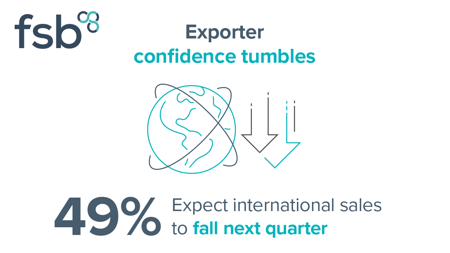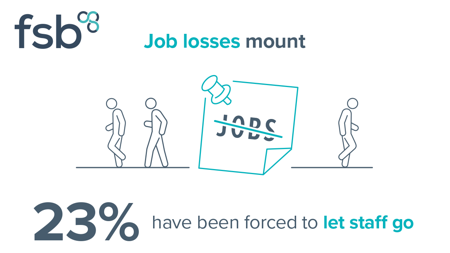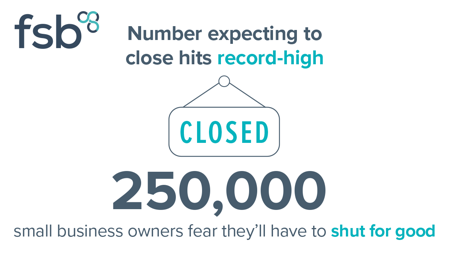Foreword
Second, responsible treatment of emergency debt facilities. Hundreds of thousands of small firms have taken on sizeable bounce back loans to see them through these hard times. Many have borrowed in order to adapt and innovate – it would be a tragedy to lose the great businesses of tomorrow because of a failure to extend grace periods today.
And third, a clear roadmap for getting us back to something more like normality. The vaccine programme has come out of the blocks strong, but we still need to see much more from test-and-trace – we were promised world class infrastructure, there is still time to deliver it. Equally, The Treasury should be conscious of everything that small firms have been through of late – confidence has been in negative territory for two years now – tax rises must be eschewed for the rest of 2021 if we want businesses firing on all cylinders again, driving our economy forward.
Where all of the above is concerned, we need to see action now. The Government is talking about a March Budget, but support at that point will prove too little too late for many of the 250,000 small businesses planning to close over the next 12 months. We’ve had the nightmare before Christmas. As we greet the New Year, we call on policymakers to give small firms a chance to pursue their dreams in 2021.
Key snapshots



Key Findings
The FSB Small Business Index slipped further in Q4, reaching -49.3. This outweighs the score witnessed in Q3 to become the second-lowest reading on record.
Unanimous negativity was witnessed when considering business sentiment on a regional basis. Scotland was the least confident region of the UK, with an index score of -69.0. The East Midlands was the highest scorer with a reading of -22.8. Alongside Wales and the West Midlands, the East Midlands was one of only three regions to experience an improvement in business sentiment between Q3 and Q4.
All major sectors exhibited negative index scores in Q4. There was some significant variation in scores, however, reflecting differing levels of business disruption caused by lockdown measures. Accommodation & food services remains the least confident industry, reporting a score of -108.1. At the other end of the scale, businesses in professional, scientific & technical activities were the most resilient, scoring -19.9.
Businesses’ downbeat forecast of profits in Q1 2021 largely matches their experience in Q4 2020. A net balance of -39.4% of small businesses anticipate gross profit growth in the first quarter of 2021, almost mirroring the -38.8% figure exhibited when reporting Q4’s gross profit growth.
Exporting businesses anticipate a further decline in the value of such exports in Q1. The net balance of firms expecting export growth in Q1 stands at -29.0%. This marks a considerable slip from the net balance of -16.0% reporting export growth in Q4. Brexit uncertainty and potentially declining global demand amidst the latest wave of coronavirus infections are likely key factors behind this sentiment.
Nearly half (46.5%) of all businesses experienced cost increases in Q4. Labour and inputs remain the two most common sources of cost changes amongst firms, being selected by 29.8% and 29.4% of firms, respectively. The proportion of firms citing the exchange rate as a main source of cost increases saw an uptick of 4.4 percentage points between Q3 and Q4, the largest of any category.
The rate at which small businesses cut employment levels remained considerably above historic averages during the last three months of 2020. 22.3% of small businesses reported cuts to their workforce in Q4. Cuts were most prevalent in London and Scotland, aligning with these regions being the two weakest scorers on the headline index.
Growth aspirations fell back in Q4. The net balance of small businesses expecting to expand slipped by 7.0 percentage points compared to Q3, reaching 18.2%. Business pessimism is further illustrated by the growing rate of businesses expecting to cease operations in the coming year, which reached 4.3% in Q4. This was particularly prevalent in the accommodation & food services sector, with closure being considered by 10.7% of such businesses.
Firms perceive the wider economy to be the key barrier to their growth over the next year, with this being cited by 76.7% of survey respondents. This is of little surprise given the weakness of demand conditions amid continued restriction measures and the prospect of a double dip recession for the UK economy.
The credit availability and affordability indices slipped back from their respective highs. Nevertheless, at -5.2 and -0.1, respectively, both measures remain above historic averages. This reflects the importance placed on credit by government policymakers, with this being pivotal to short-term business liquidity and overall survival.
Download the full Index






